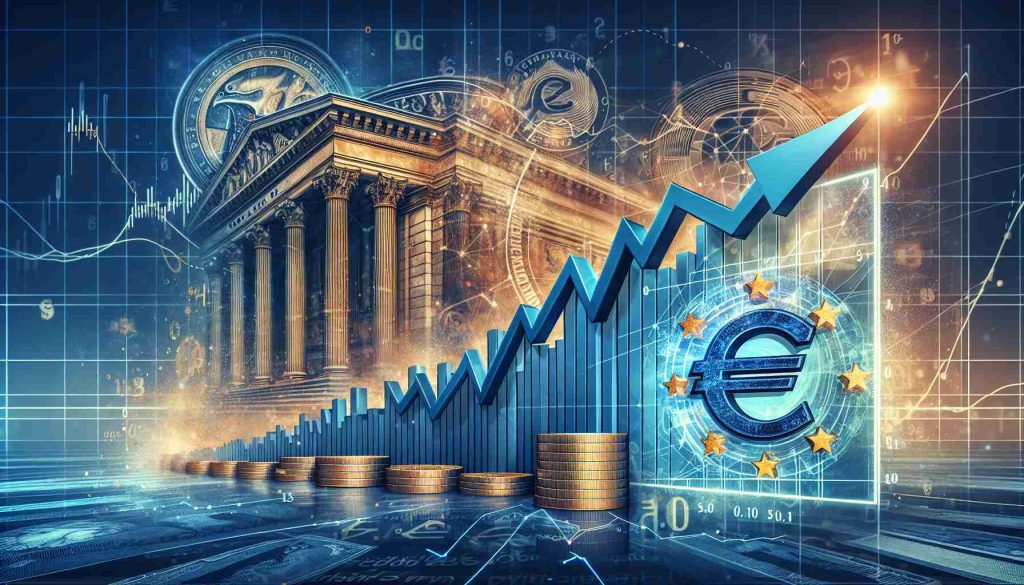Euro rebounds in European trading, bolstered by shifts in US Dollar trends. Market outlook hints at a challenging road ahead, with the European Central Bank (ECB) primed for pronounced policy adjustments amidst dwindling economic growth and persisting inflationary pressures in the Eurozone.
Analysts at Bank of America predict comprehensive rate cuts well beyond market expectations, contemplating an eventual return to a 2% deposit rate by 2025. Lingering uncertainties tied to China’s economic deceleration and political intricacies add to the Eurozone’s fragility.
ECB officials echo concerns about escalating risks to regional growth. Statements from ECB Executive board member Piero Cipollone underline the pressing need for a balanced approach to stimulate inflation while nurturing economic vitality, given the current economic climate.
As market conditions evolve, focus shifts towards the upcoming Eurozone Retail Sales data release for July. Projections foresee a marginal uptick following June’s contraction, underscoring the urgency for ECB to recalibrate its easing strategies.
Today’s attention hones in on the Eurozone Producer Price Index (PPI) data for July as a leading indicator of economic momentum. Anticipated modest deflation in producer prices signifies potential repercussions on demand, potentially prompting the ECB to consider rate adjustments in September.
New Data Reveals Factors Influencing Euro’s Path Amidst ECB’s Easing Cycle
As the Euro gains support ahead of potential aggressive easing measures by the European Central Bank (ECB), new data unveils additional insights shaping the currency’s trajectory. Amidst the evolving landscape, several crucial questions arise, shedding light on key challenges and controversies associated with the topic.
What are the most important questions?
1. How will the ECB’s anticipated aggressive easing cycle impact the Euro’s exchange rate in the short and long term?
2. What specific measures is the ECB likely to implement to counter economic challenges in the Eurozone?
3. How will external factors, such as geopolitical tensions and global economic trends, influence the effectiveness of the ECB’s easing strategies?
Answers to Key Questions:
1. The ECB’s aggressive easing cycle could initially weaken the Euro as interest rates are adjusted downward. However, over the long term, these measures are aimed at boosting economic growth, which could potentially strengthen the Euro.
2. The ECB may resort to not only rate cuts but also unconventional measures such as quantitative easing to combat economic downturns and stimulate inflation in the Eurozone.
3. External factors may complicate the ECB’s efforts, as uncertainties stemming from global events could impact market sentiment and the effectiveness of the ECB’s policies.
Key Challenges and Controversies:
1. Balancing the need for economic stimulus with the risk of inflation overshooting targets poses a significant challenge for the ECB.
2. Disagreements among ECB policymakers regarding the extent and timing of aggressive easing measures may lead to internal conflicts and market uncertainties.
3. The potential impact of prolonged low interest rates on savers, investors, and financial institutions is a contentious issue that the ECB needs to address.
Advantages and Disadvantages:
Advantages:
1. Easing measures can potentially spur economic growth, boost consumer spending, and support investment in the Eurozone.
2. Lower interest rates could make borrowing more affordable, thereby encouraging credit expansion and stimulating economic activity.
Disadvantages:
1. Aggressive easing may lead to currency devaluation, affecting the purchasing power of consumers and businesses.
2. Prolonged low interest rates could erode returns for savers and pension funds, creating challenges for long-term financial planning.
For further insights on the Euro’s trajectory amidst the ECB’s preparations for an aggressive easing cycle, visit ECB Official Website.
